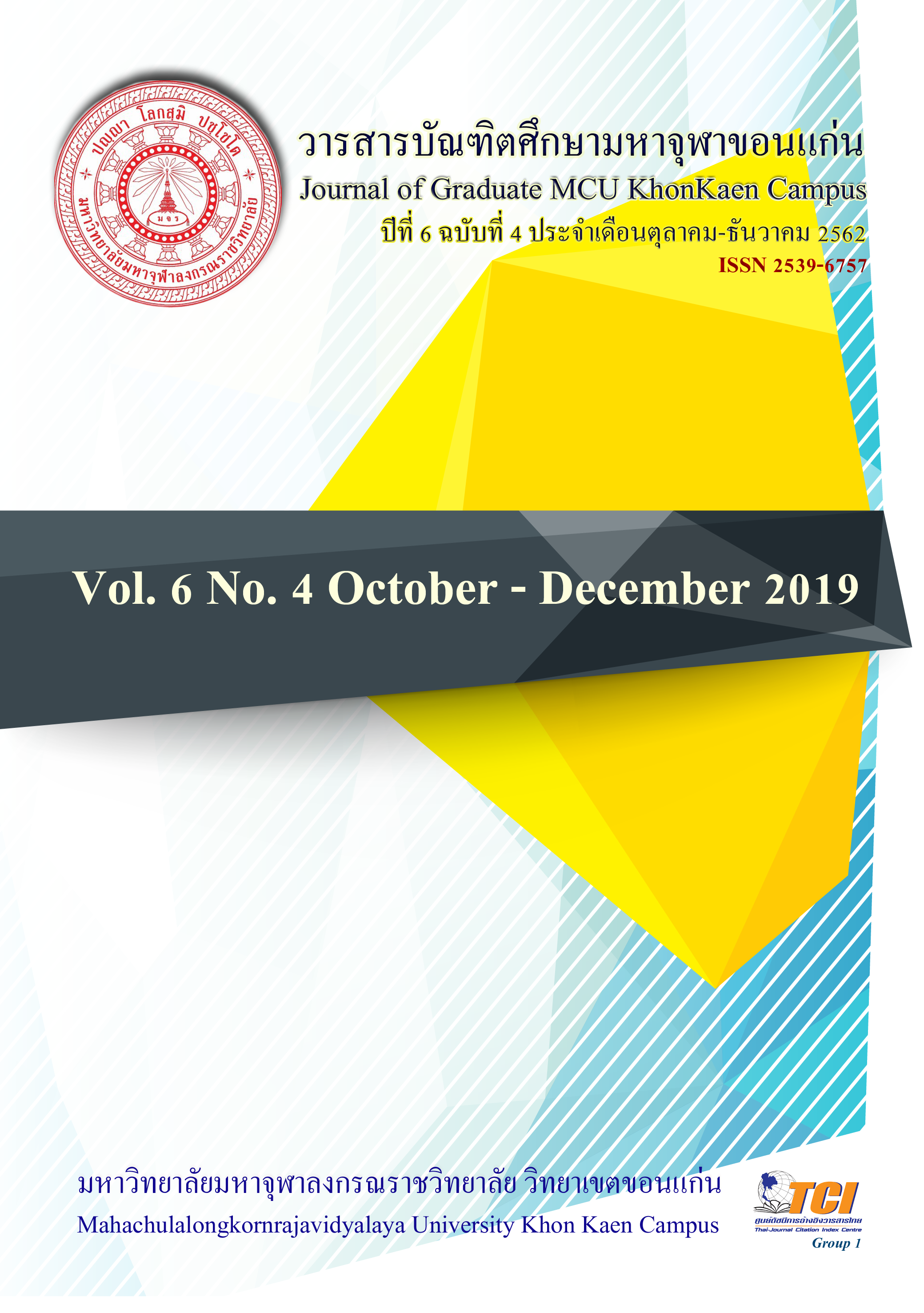Management of Disciplinary Misconduct by Monks in the Khon Kaen Provincial Office of Buddhism
Main Article Content
Abstract
The objective of this research is to study 1) Perspectives and opinions on how to deal with monks who do not comply the discipline 2) the causes and factors related to the monks who do not comply the discipline, 3) suggestions about the problems. And solutions Through in-depth interviews with the administrators, civil servants and officials in the Office of Buddhism in Khon Kaen, totaling 15 people.
According to the study, The opinions of the monks who did not comply with the discipline by 2.2 % were as follows. Monks are monks Living in a different way from the householder But in practice, it is possible to do some, not some Like a mortal who still has lust which can be seen as normal Because the monks are A human being enters a priest to train himself to be a good person. It is not that monks have already become good monks, but they have to go through refined training first. As for civil servants The villagers have helped the monks to behave like a householder because of the excessive attention to the four factors, causing the monks to mistakenly think that they are magicians and neglecting their duty to study the dharma and some officials. People think that Monks should be aware of their duties and abide by strict discipline. The management in this matter saw that Should have a study program Training about practice Principles of managing the clergy and creating strong religious heirs and establishing a good polishing system and state laws should also be responsible for the actions of the clergy, including the improvement of forms Buddhist methods for modern times. Regarding causes and factors, 1.5 % found that the causes and factors related to the monks who do not follow the discipline are 1) the living environment, 2) interests and 3) familiar relationships, and about 2.1 % of the suggestions on the problems found that there should be screening before ordination. Should educate Training about observances Practices and principles of Buddhist discipline and when an offense should be punished, both discipline and national law as well.
Article Details
References
and protection measures Buddhism affairs. National Reform Council.
Khon Kaen Buddhism Office. (2019). Action plan for fiscal year 2019. Khon
Kaen. Office of Khon Kaen Buddhism.
Phra Phaisan Wisalo. (2003). Buddhism in the future Trends and solutions
from the crisis. Bangkok. Sodsri-Saritwong Foundation.
Phramaha Hansa Dhammahaso. (2019). Situation of Buddhist Companies
in Thai Society: Faith Warp or Crisis of Faith. (online). Retrieved 14
April 2019, from http://www.ps.mcu.ac.th/?p=1510.
Phra Ratvorameti and others. (2017). Strategic Plan for Buddhism Reform
2017-2021 (Policy Implementation). Khon Kaen. Office of Khon Kaen Buddhism.
Phisit LomKhampha. (2018). Phra mute lottery - Mao liquor. (online).
Retrieved 7 April 2019, from https://news.mthai.com/general- news /
622139.html
Paradee Pluprapa-Iamcharoen. (2017). The format for resolving the crisis of
faith in monks according to Dhamma principles.
Discipline. (online). Retrieved April 7, 2019, from http://www.ojs.mcu.ac.th/index.php/lampang/article/download/3642/2627.
Tanat. (2016). Men dress like monks. (online). Retrieved 7 April 2019.
from https://news.mthai.com/ social-news /636102.html.
Vannop ditklai. (2018) .Chairman dressed like a monk (Racing
motorcycles on Muang Khon road. (online). Retrieved on 7 April 2019, from https://news.mthai.com/social-news/674764.html.

